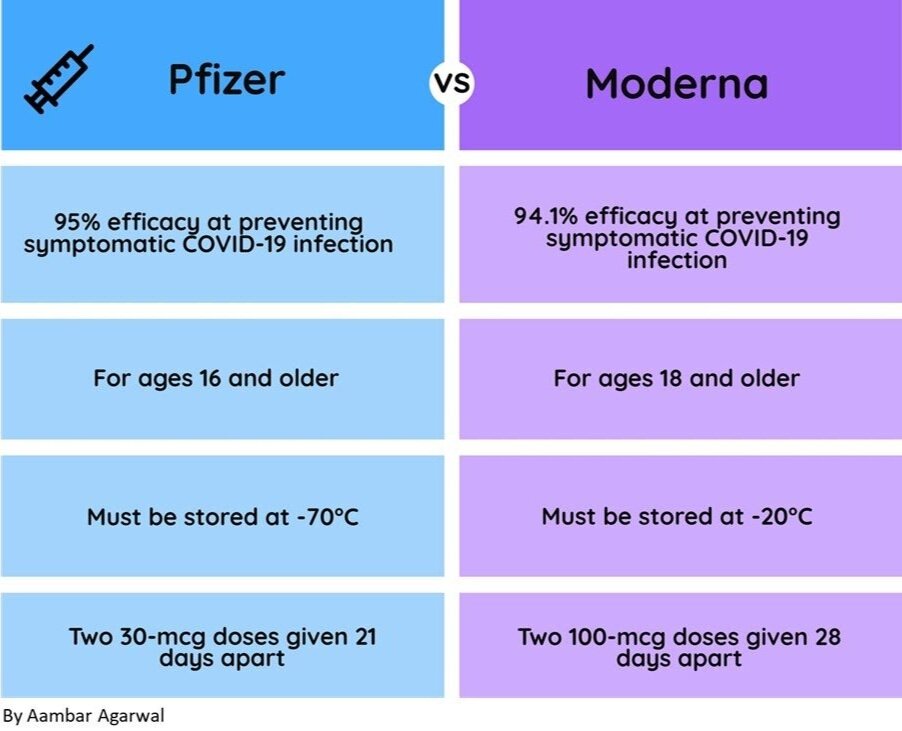The COVID-19 Vaccines
By: Aambar Agarwal
In the past few weeks, as cases and deaths continue to rise, two COVID-19 vaccines have been authorized by the FDA for emergency use: one made by Pfizer and BioNTech and the other by Moderna. Here’s a quick rundown of everything you should know.
Both vaccines deliver mRNA that codes for the spike protein on the coronavirus. After receiving either vaccine, your body is able to mount an immune response to the proteins, making antibodies to interfere with the proteins’ activity. If you are later exposed to the virus, those antibodies will already be there to fight it, protecting against symptomatic COVID-19.
Like with any vaccine, there are side effects: injection-site reactions, fatigue, headache, muscle pain, chills, joint pain, and fever. These are simply signs that the vaccine is working. While there have been cases of allergic reactions to the Pfizer vaccine, it should not be a concern unless you have a history of severe allergic reactions to any of the vaccine ingredients.
When will we get it?
Due to the limited shipments of the vaccines, those who are most vulnerable to COVID-19 have higher priority, such as healthcare workers and those living in long-term care facilities, as well as essential workers and those with preexisting conditions. By June, the vaccines should be widely available to all Americans.
What does this all mean?
The end of the pandemic is in sight, but we still have a long way to go. After all, over 300 million Americans need to get vaccinated, as well as the rest of the world, and more trials need to occur to fully understand the vaccines’ capabilities, especially in regard to those 16 and under.
Most importantly, we don’t know yet if the vaccines protect against asymptomatic COVID-19, meaning that after receiving a vaccine, you can still be a carrier of the virus and give it to someone else, thus potentially dooming those who have not been completely vaccinated.
The bottom line: Keep wearing masks and social distancing – even after you have been vaccinated.
More readings:
https://www.nytimes.com/live/2020/2020-election-misinformation-distortions
https://www.cnn.com/2020/12/18/health/us-coronavirus-friday/index.html
https://www.nytimes.com/2020/12/18/health/covid-vaccine-allergies.html
https://www.cnn.com/2020/12/17/health/moderna-vaccine-what-we-know/index.html
https://www.cnn.com/2020/12/11/health/pfizer-vaccine-what-we-know/index.html
https://www.cdc.gov/coronavirus/2019-ncov/vaccines/index.html
